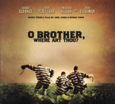Mountain Soul
Patty Loveless fits into 'Down from the Mountain's' Opry-like style
By Alan Sculley

Those who didn't get enough of Patty Loveless during the Down from the Mountain kickoff in January-or missed the show entirely-will get a second chance when the tour comes to Freedom Hall in Louisville next week.
Patty Loveless won't deny that the timing of her life, her career, and even musical trends came together nicely when she recorded her latest CD, Mountain Soul. The bluegrass album, released in 2001, dovetailed neatly with the mushrooming popularity of the soundtrack to the film O Brother, Where Art Thou and the successful documentary and tour, Down from the Mountain.
The Grammy-winning soundtrack managed to introduce the classic traditional and bluegrass style of music to a host of new fans (and with almost zero airplay on commercial radio-creating a revolution in itself).
While Loveless is not directly connected to the O Brother soundtrack, she has become loosely affiliated with the project as a performer on the Down From The Mountain tours that have brought together several of the most respected performers of traditional country and bluegrass (including Emmylou Harris, Alison Krauss & Union Station, and the legendary Ralph Stanley).
Of course, those who've followed Loveless' career-and especially
those who are familiar with her upbringing-know that it didn't take a hit soundtrack for a bluegrass album to make sense for Loveless.
She grew up in the hills of eastern Kentucky as one of seven children, and bluegrass and the Grand Ole Opry radio show were regular parts of everyday life. Her first concert was a show featuring bluegrass legends Lester Flatt and Earl Scruggs at a drive-in movie theater in Pikeville, Kentucky.
And while Loveless is known primarily for the many contemporary singles she's had on country music charts over the past 15 years, her music-informed by the down-home twang in her richly expressive voice-has always had an earthier quality than many of her more glossier, more poppy country music peers. In fact, most of her albums have featured at least a tune or two that had a distinctly acoustic or bluegrass bent.
The fact is, Loveless said, the idea to do a bluegrass album had been bubbling up for nearly a decade. "Back in 1992, Ralph Stanley had called us and wanted me to do this festival that he normally puts on twice a year, once in the spring and once in the fall," Loveless recalled.
Knowing she couldn't do her standard country music set for a bluegrass audience, Loveless and her husband, record producer Emory Gordy Jr., formed an acoustic group and worked up a rootsy set especially for the occasion. "We did just a collage of bluegrass music," Loveless said. After it was all said and done, we got back. And we had recorded it. It was a little rough around the edges. Emory and I were listening to it and he said, 'Honey, I'd love to do a whole record like this with you one day.'"

Over the next several years, Loveless began to incorporate a mini-set of acoustic tunes into her live shows, often performing such bluegrass standards as "Daniel Prayed" and "Soul of Constant Sorrow," a tune based on "I'm A Man of Constant Sorrow," the song that serves as the theme to O Brother, Where Art Thou?
The acoustic sets quickly became a favorite part of her live shows. "I used to get backstage, when I would do like the meets-and-greets or autograph lines, when I was doing more of the acoustic stuff, people would look at me and say, 'Why don't you ever think about doing a full record like that, of acoustic music,' is the way they would put it," Loveless said. "Or they would say, 'Where can we get that song? What record is that on?' And I would say 'Well, I haven't recorded it yet.'"
 |
|
|
Finally in summer 2000, some employees from her label, Epic Records, saw Loveless perform in Los Angeles and witnessed the enthusiastic reception to her acoustic set first-hand. The label personnel casually tossed out the idea of doing an acoustic album, which was all Loveless, Gordy, and Loveless' manager needed to hear to go to Epic with the idea of actually doing the CD.
The Mountain Soul project was approved and in the works before O Brother started to catch on and began its path to sales of nearly three million and multiple Grammy awards.
Loveless used the project to help introduce fans to her musical roots, to her family, and to the place music occupied in her life growing up.
The CD jacket includes photos of her father (a coal miner whose life was eventually claimed by black-lung disease), her mother (who Loveless said loved to sing and dance) and her grandparents.
Then, of course, the songs themselves speak volumes of Loveless' knowledge and love for bluegrass. Whether it's frisky upbeat material like "The Boys Are Back In Town" and "Pretty Little Miss" or mournful ballads such as "Someone I Used To Know" and "You'll Never Leave Harlan Alive," Loveless sounds perfectly at home, and her earthy voice proves an ideal match for the material.
"I did it for my own soul. It's just something that I know my father probably would have always wanted me to do, even though he wasn't here to enjoy this moment. I just know for a fact that he would have been very proud, and it makes me feel good inside to know that I've done something that both my parents can feel a part of and be very, very proud that I did."
This summer Loveless returns, as Down From The Mountain steps up to larger venues (many outdoors) with a show that once again features Krauss and Stanley, as well as such prestigious bluegrass talents as Del McCoury and Ricky Skaggs.
"It's almost like being at the Opry," Loveless says of the tour. "It's sort of that feel to it for me. You go out and you do your couple of songs, and then from time to time the artists, will perform together, and it's almost like a mini musical play or something."
Loveless will appear as part of the Down from the Mountain Tour, Freedom Hall, Tuesday, June 25 in Louisville. (She has several solo dates in Eastern Kentucky in July.)
Background
Mountain Soul followed a period in which her fortunes had taken a dip after an extended run of success. Debuting on MCA Records in 1987 with her self-titled album, Loveless' career really took off with a trio of albums she released after moving over to Epic Records in 1992. Her albums Only What I Feel (1993), When Angels Fly (1994) and Trouble With The Truth (1996) each spawned multiple hits and the latter CD even won best album honors from the Country Music Association in 1996, while Loveless earned best female vocal honors from both the CMA and Academy of Country Music that year.
But her fortunes took a dip with Long Stretch Of Loneliness (1997) and Strong Heart (1999), as contemporary country veered more toward pop. In fact, Loveless has since gotten the lion's share of her airplay on classic country radio.
After Strong Heart failed to connect with radio, Loveless-who was burned out from a long stretch of touring and recording-went off the road for a much-needed break.
She feels the decision to next do Mountain Soul-a labor of love if ever there was one-helped to recharge her creative batteries.
HOME | THIS ISSUE | ACE ARCHIVES